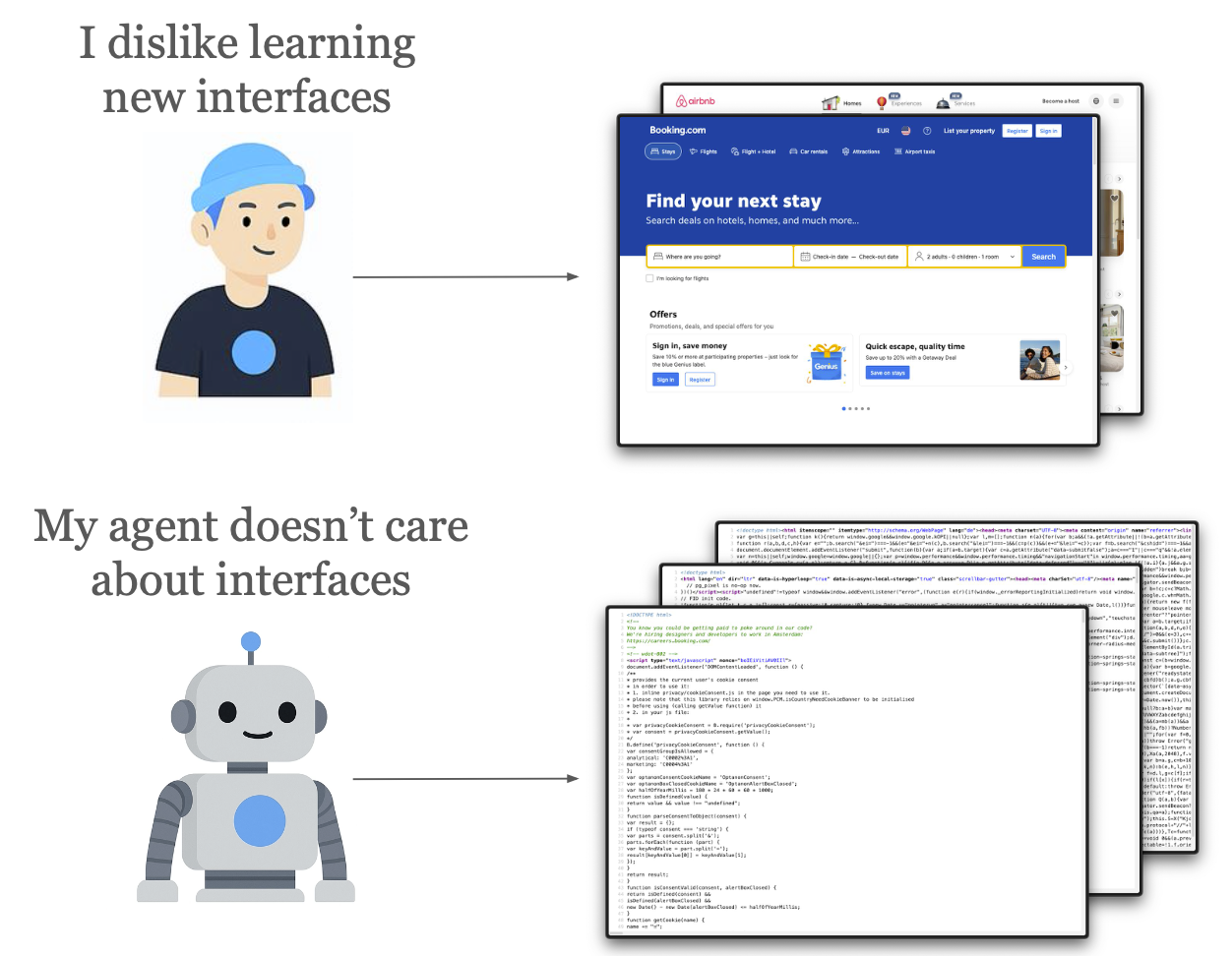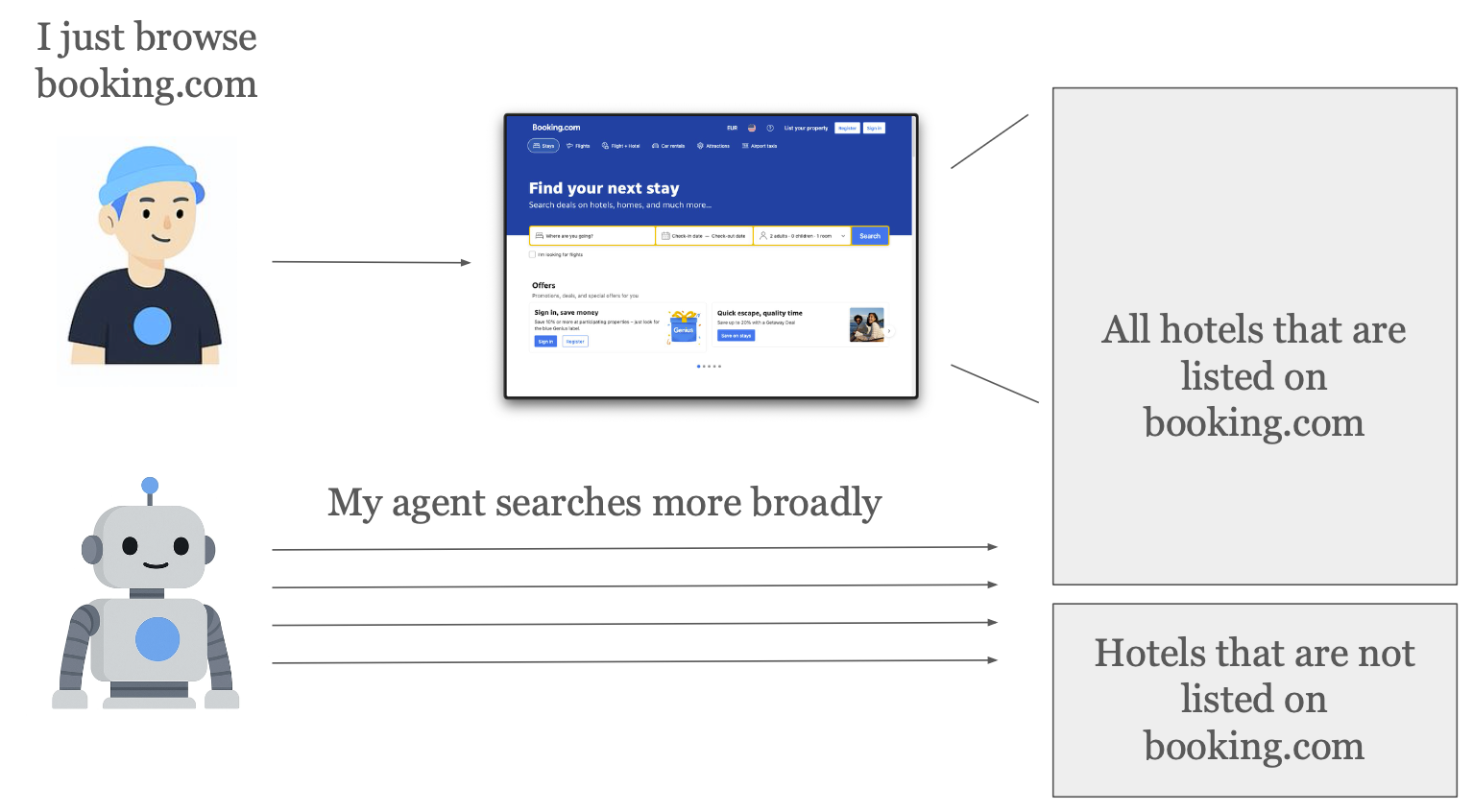AI reduces the power of aggregators

This blog post came out of a discussion I had with a friend. Instead of a theoretical argument, I'll just give the example we spend the most time on.
Booking a hotel
I can not be bothered to check more than one or two sites when planing trips, and I prefer familiar interfaces. Let's say I mostly use booking.com. I will rarely look somewhere else because I do not need more choices than what's there. I am also happy with the platform taking a cut for making the booking process predictable.

But manually researching hotels on booking feels sooo November 2024. How does AI change this process? My research agent will happily check platforms or individual hotels' websites to arrive at good recommendations. After my agent finished it's research, I will receive an interactive report with a filterable map that might not even look that different from booking.com's website (because software is becoming more malleable). And when I have chosen my favorite option, my agent will handle the booking or I might have to do a few steps manually. Thus, even if a hotel is not listed on booking.com, as long as a hotel is found by my agent (via web search, yellow pages, ...), we might get into business.

As a bonus, even if publicly listed prices for the hotel room are the same as on booking.com, my agent could negotiate better offers with the hotel. We divide the fee that would go to the aggregator between us, and no one but us knows about the terms. From my non-lawyer perspective, a private negotiation would allow them to go around the "nowhere else cheaper" policies that some aggregators require in their contracts. Hotel owners are happy, and I am happy.
Trust and convenience are strengths of aggregators
Of course, aggregators solve more than just the interface problem. I want to highlight two: trust and convenience.
Through ratings, aggregators give a lot of power to consumers and makes it easy for consumers to trust that a supplier will deliver. By talking directly consumer-to-business, consumers lose the power they to lave a rating on a given aggregator. I don't think this is a particularly big issue, though, because reputation is not limited to ratings on aggregators. For example, you can leave a Google Maps review even if you didn't book the night via Google Maps. Or the nostr folks are right and we will settle on a permissionless, decentralised web of trust eventually. And since my agent will just search broadly, if a business has a bad reputation, it will most likely find out.
For convenience, the biggest factor is having frictionless, secure payments on all aggregators. I have added my credit card to booking.com years ago, and nothing bad has happened so far. But do I really want to add my credit card details to a page of a hotel that looks like from the 90s? Companies like Stripe, PayPal, or cryptocurrencies may fill in here.
As you might have guessed, I don't think creating a web of trust and a convenient buying experience requires aggregators.
This will not happen overnight
In 2023, a quarter of travel agency business still happened offline. Numbers like this always amaze me. I never even stood in a brick-and-mortar travel agency personally. But that just shows that people have preferences and habits, and changing those does not happen over night.
For this reason, I don't expect a sudden, massive shift away from aggregators. They launch their own AI-enabled offers, try to become the leading source for agents, etc.
But in the end, they will have less power when more consumers and suppliers connect directly.
